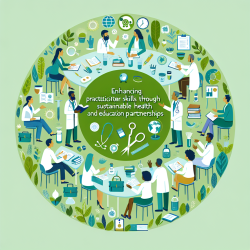Inclusive education aims to adapt the environment to meet the diverse needs of all students, including those with neurodevelopmental disorders (NDDs) such as ADHD and autism spectrum disorder. A recent study published in the Scandinavian Journal of Child and Adolescent Psychiatry and Psychology titled "Inclusive practice for students with neurodevelopmental disorders in Sweden" provides valuable insights into the current state of inclusive practices in Swedish schools.
According to the study, a significant gap exists between the inclusive educational ambitions and the actual practices implemented in schools. This research, conducted using the 61-item INCLUSIO scale, surveyed 4778 school staff across 68 public and private schools in Sweden. The findings highlight several areas for improvement, which can guide practitioners in enhancing their inclusive practices.
Key Findings and Recommendations
- Teacher Education and Training: Only 5.8% of the school staff felt adequately prepared to teach students with NDDs. There is a clear need for comprehensive, evidence-based education on NDDs to be included in teacher training programs. Continuous professional development and hands-on supervision in classrooms are essential to ensure that teachers are well-equipped to support these students.
- Structured Learning Environment: Implementing a structured learning environment with clear rules, routines, and communication strategies is crucial. The study found that only 30.8% of the respondents reported using short, concrete, and stepwise instructions consistently. Enhancing these practices can significantly benefit students with NDDs.
- Individualized Support: Individualized support plans and adaptations in teaching methods are vital for inclusive education. However, only 27.0% of the respondents indicated that everyday individual adaptations were provided. Schools should prioritize developing and following up on individualized support plans for students with NDDs.
- Collaboration with Parents and External Services: Effective collaboration with parents and external services is a cornerstone of successful inclusive education. The study showed that while 43.1% of respondents acknowledged using caregiver knowledge to optimize support, there is still room for improvement. Schools should establish regular communication channels with parents and coordinate with external services to provide comprehensive support for students with NDDs.
Encouraging Further Research and Implementation
While this study provides a comprehensive overview of the current state of inclusive practices in Swedish schools, it also underscores the need for further research and implementation of evidence-based strategies. Practitioners are encouraged to explore the full research paper to gain deeper insights and consider how they can apply these findings in their own educational settings.
To read the original research paper, please follow this link: Inclusive practice for students with neurodevelopmental disorders in Sweden.










